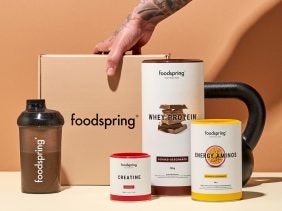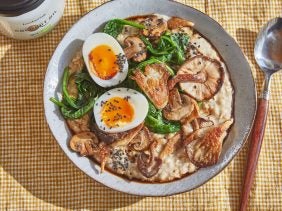Want to Be as Strong as a Quarterback? You Don’t Need to Eat Meat for That!
 © foodspring
© foodspring
Nerves of steel, risk taking, speed and a strong throwing arm – all these qualities are needed when you’re a quarterback playing in the most important position in American football. Your team’s success rests on your shoulders and that requires some serious training. Without the right diet though, you’ll only be half as successful.
But that’s not to say that quarterbacks like Justin Fields and Tom Brady have lunchboxes full of chicken and rice, low-fat cottage cheese and mozzarella in their refrigerators. Muscles need protein to grow of course, but the protein sources don’t have to be of animal origin. In recent years there has been a major shift in thinking, including in sports, and more and more athletes are turning to plant-based sources of protein, either entirely, like Justin Fields, or on the 80/20 principle like Tom Brady. Both variants seem to work — anyone who knows anything about American football will know what we mean.
Related: Building muscle on a vegan diet — top tips for max results.
The Role of Proteins in Muscle Building
If you regularly push your limits with squats, deadlifts and our fitness programs, you’ll know that a protein-rich diet in addition to training is the foundation for muscle building. To understand why, let’s briefly recap how muscle growth, or more specifically muscle hypertrophy, works.
Muscles grow as their fibers increase in thickness. This happens when you use intense training to create new stimuli that results in so-called microtrauma. This refers to tiny injuries in your muscle fibers that are necessary for muscle to grow. When this happens your body not only repairs the muscle fibers, but also strengthens them to prevent new injuries. Two things are needed in particular for this: sufficient recovery time and, above all, proteins. That’s because they’re the basic building blocks for muscles.
The smallest elements in proteins are 21 different amino acids. We should be focusing on nine essential amino acids, because our bodies can’t produce them, which makes us dependent on food for our supply of them.
How Much Protein Do Your Muscles Need?
The German Nutrition Society (DGE) recommends an intake of at least 0.8 grams of protein for each kilogram of body weight. People who do strength training can increase this intake up to 2.2 g, but beyond this point, no growth-promoting effect has yet been proven.
A person weighing 70 kg should therefore consume between 56 and 147 g of protein daily. Although this sounds a lot, it’s not difficult to achieve if you eat a balanced diet.
If you eat meat regularly, you automatically consume a lot of protein. That’s because it not only has a high protein content, but also a high biological value due to its composition of all of the essential amino acids. This is a standardized reference figure, based on a hen’s egg having a biological value of 100.
Plant-Based Muscle Building
Even though meat helps build muscle, you don’t have to give up on strong muscles if you have a vegetarian or vegan diet, as numerous studies confirm! All you need is a basic overview of what’s on your plate. Many vegetarian ‘animal’ products and plant-based foods contain plenty of protein. When properly combined, their different amino acids complement each other so that their biological value increases. As a result, it’s in no way inferior to a meat-based diet. Pulses, nuts, cereals and pseudocereals such as amaranth are particularly high in protein.
Quarterback Justin Fields is a good illustration of vegan muscle building. After taking on the challenge of eating vegan for a month with his family, he never looked back. Fields revealed to The Beet magazine that ever since becoming vegan he’s felt much better, physically. In training, he’s felt lighter and faster, and he thinks his performance has improved dramatically.
If you eat a vegan diet, you need to be more conscious of your intake of micronutrients.
You don’t have to be a strict vegan or vegetarian, however. If you consume animal products consciously and pay attention to their origin and quality, this can also have a positive impact on both your health and the environment. Tom Brady reveals on his website that his diet is based on 80% plant-based foods and 20% animal. Of course, this doesn’t just include meat. Vegetarian protein sources include dairy products such as cottage cheese, Harz cheese, mozzarella, feta and eggs. Interestingly, after a game Brady fuels his muscles with plant-based protein shakes. So with our vegan protein, you too can feel like a pro quarterback after your workout.
Recipes
Vegan Banana Pancakes
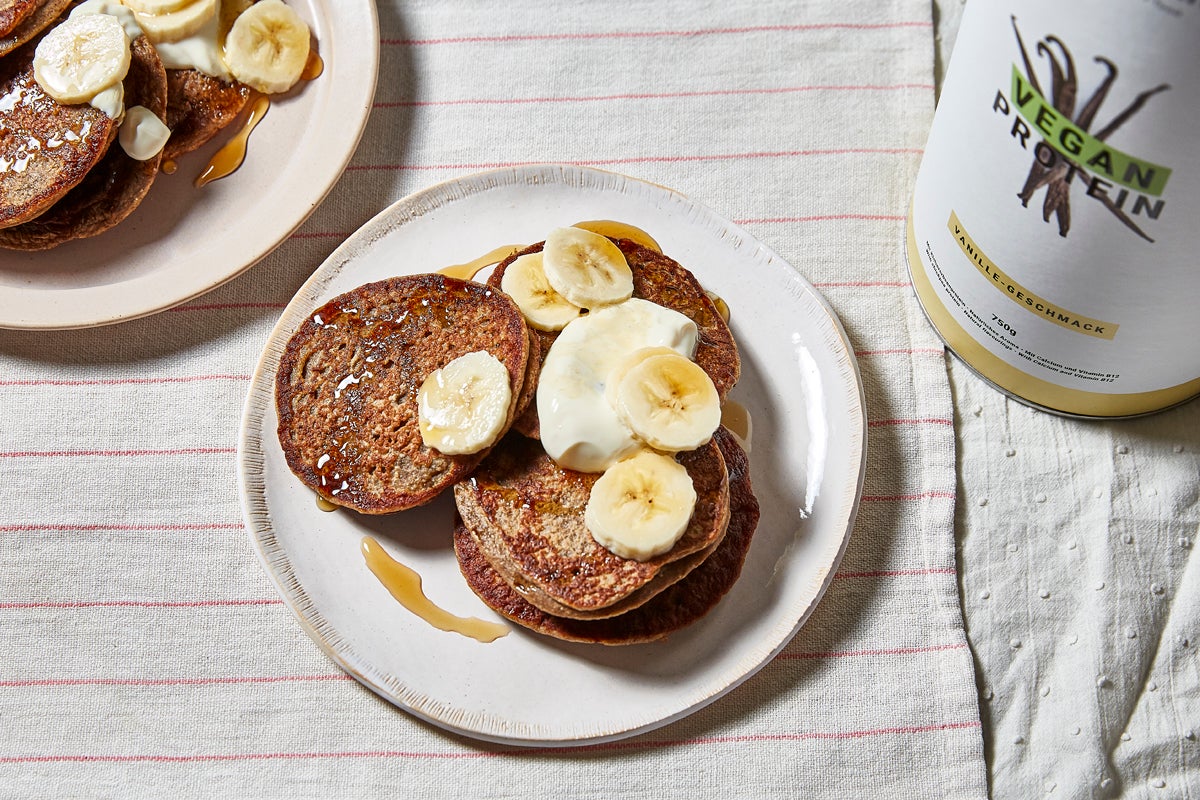
You can enjoy a large portion of protein at breakfast: these are vegan pancakes and can be topped with your favorite fruit.
Vegan Tofu Fried Rice
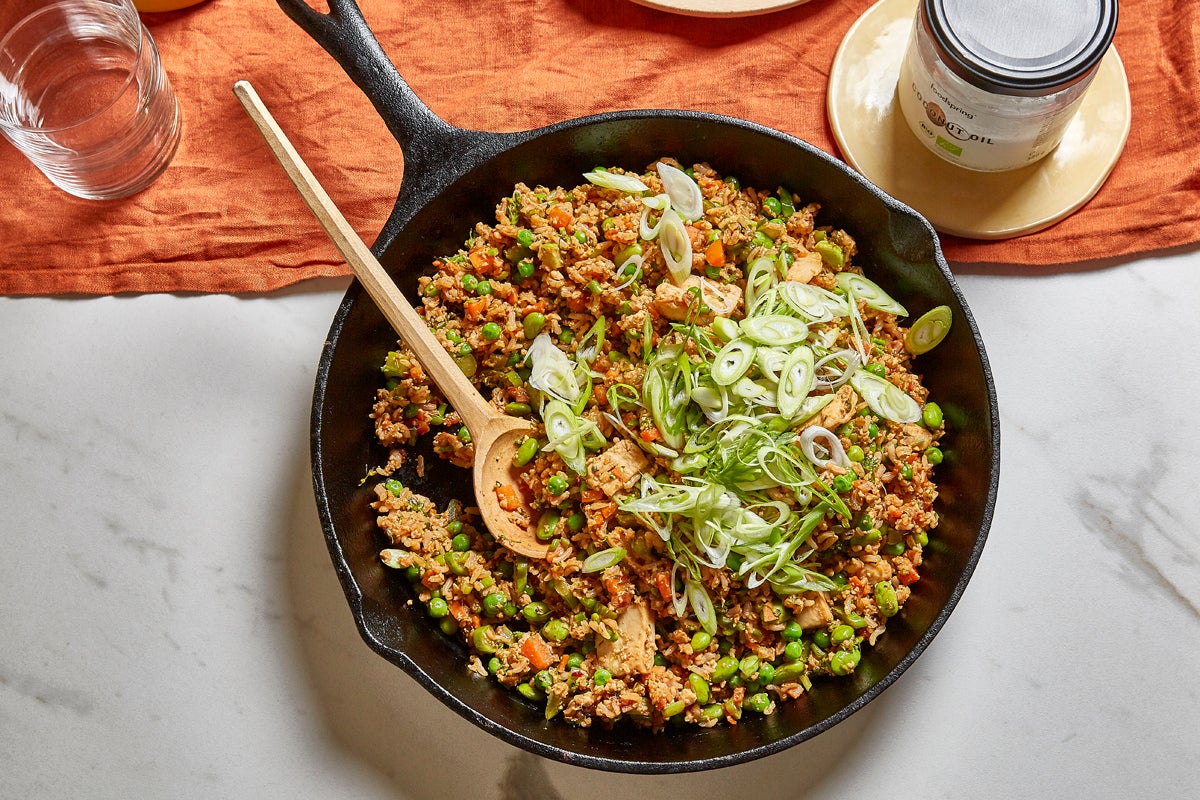
You don’t need many ingredients for this simple recipe, and you’ll get a whopping 37 grams of protein per serving. Perfect for meal prep.
Vegan Chili Stuffed Sweet Potatoes
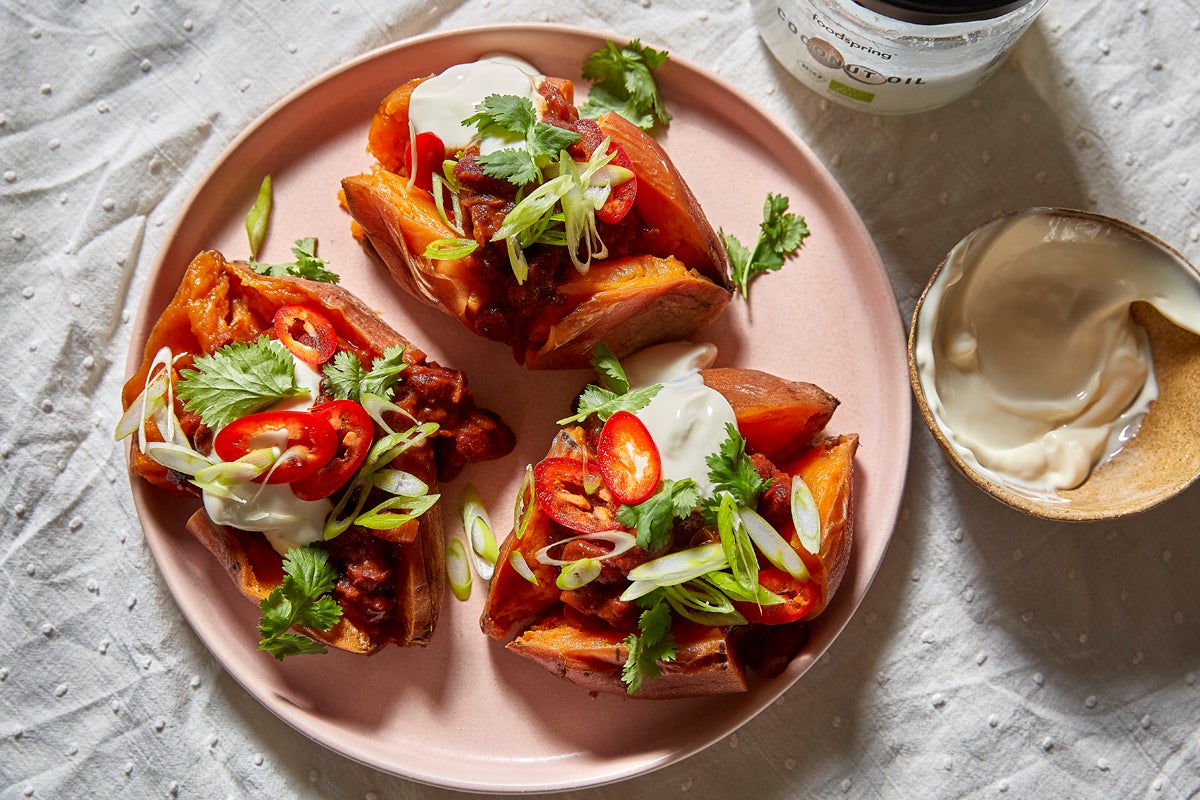
A vegan chili alternative is just as easy to prepare as the meat version. Protein-rich and filling, it’s the perfect dinner, even if you’re in a hurry.
More interesting articles from foodspring:
Sources for this article
We at foodspring use only high-quality sources, including peer-reviewed studies, to support the facts within our articles. Read our editorial policy to learn more about how we fact-check and keep our content accurate, reliable, and trustworthy.




























